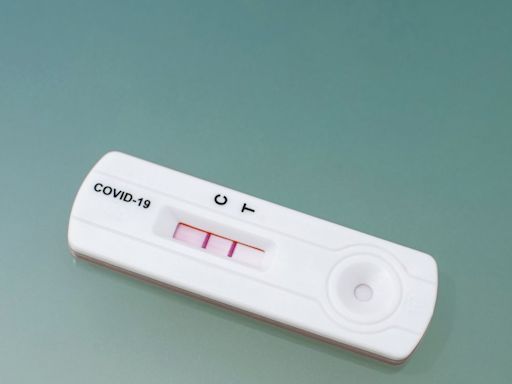Ad
related to: covid when are you contagious in adultsThe Latest COVID-19 Facts, News & Possible Answers To Frequently Asked Questions. Updated Coronavirus Information About Recommendations, Resources, And Latest Studies.
Search results
May 3, 2024 · As a general rule, most people who get COVID-19 are no longer contagious 10 days after the appearance of symptoms or after testing positive for the virus. While there is significant variation in the risk of transmission, most cases follow the same general timeline once symptoms develop.
Jan 7, 2024 · How Long Are You Contagious With COVID-19? According to the CDC, if you have mild to moderate COVID-19, you may be contagious for 10 days from the first day you notice symptoms.
- How Long Is Someone with Covid-19 Infectious?
- What Is Viral Shedding?
- When Do You Become Contagious After Exposure to Covid-19?
- When Do You Stop Being Contagious If You Have Covid-19?
The short answer is that you’re contagious with COVID for about 10 daysafter you have symptoms or test positive. The full answer is more complicated. The 10-day mark seems to apply to people who have mild to moderate COVIDillness. People with severe cases of COVID illness can remain infectious for several weeks or months. There’s also evidencethat ...
Viral sheddinghappens when a sick person releases copies of a virus from their body. Large numbers of viruses are shed when a sick person coughs or sneezes. But viruses can also be shed when you talk, cry, or breathe. Viral shedding is how viruses spread from person to person. People typically shed the virus that causes COVID for about 10 days, sta...
It’s possible to become contagious with COVID-19 on the same day you are exposed. Most people who get sick with COVID begin noticing symptoms about 2 to 14 daysafter exposure. But viral shedding can begin right away. That’s why it’s possible to spread the virus that causes COVID even before your symptoms start. Of course, not everyone who gets expo...
It depends. If you have a mild illness and your symptoms are getting better, you’re probably no longer contagious after 10 days. On the other hand, if you have a severe illness or a weakened immune system, you can be contagious for much longer. But if you’ve been fully vaccinated against COVID, you may be contagious for a shorter period of time. It...
Mar 27, 2024 · Many factors affect your risk of catching the virus that causes COVID-19. How long you are in contact, if the space has good air flow and your activities all affect the risk. Also, if you or others wear masks, if someone has COVID-19 symptoms and how close you are affects your risk.
Feb 15, 2023 · One 2021 review suggests that a person with COVID-19 is most contagious in the first week of illness. Therefore, they may be most contagious shortly before and shortly after symptoms appear.
Mar 5, 2024 · Infectious Diseases. Vaccines. For the first time since 2021, the Centers for Disease Control and Prevention has updated its COVID isolation guidance. Specifically, it has shifted the recommendation that someone who tests positive for COVID isolate for five days to a timeline based on the progression of the person’s symptoms.


